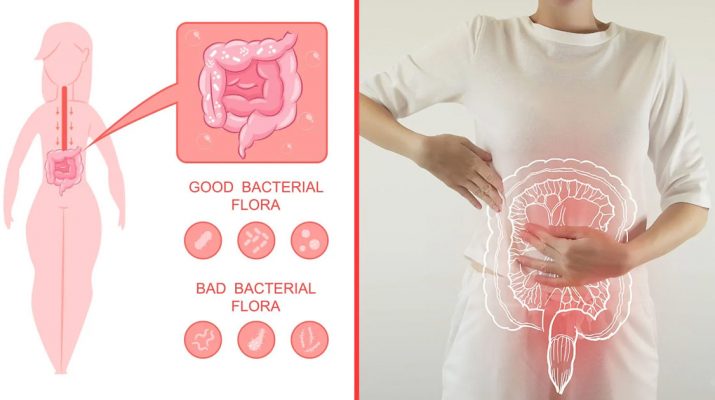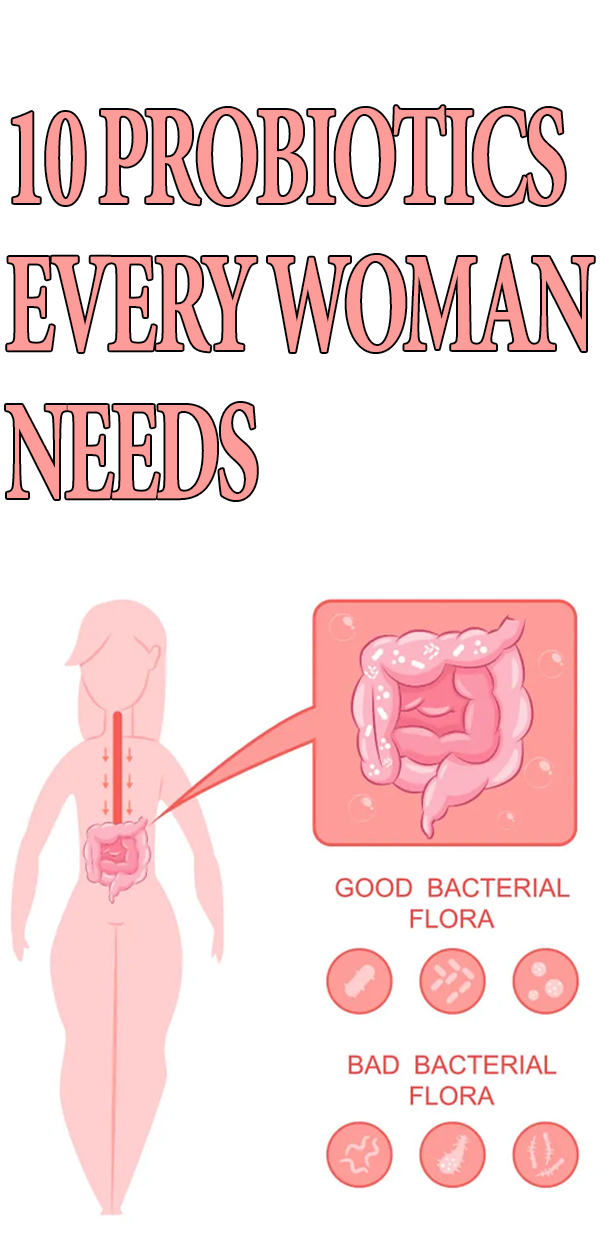Are you ready for a shocking fact? We humans carry more bacterial cells in our body than human cells. This concentration of bacterial cells to human cells is especially pronounced in the digestive tract or gut. Enter probiotics.
Probiotics are microorganisms (bacteria) that your body needs for optimum health. Probiotics constitute the “good bacteria,” “healthy bacteria,” and “helpful bacteria. ” You will often hear mention of these in the media, health magazines and books, and other outlets.
The roles of probiotics can vary between men and women. In this article, we’re going to focus on the importance of probiotics in women. Including the ten essential probiotics that every woman needs.
We’ll also provide a brief history of probiotics, the differences between “probiotic-labeled products” and cultured products, and the science of probiotics.
Quick note. Because probiotics are strains of bacteria.Yes, bacteria, but don’t worry! In fact, there are a bunch of un-pronounceable, super-scientific-y words here.
The author has included shorthand labels for the strain where available. Otherwise, don’t worry about how to say the name of the strain. Just make sure that you write the name of the strain and shorthand label if you should wish to shop around for a probiotic supplement.
A Brief History Of Probiotics
The word ‘probiotic’ stems from the Greek word pro, or “promoting,” and biotic, meaning “life.”
And indeed, probiotics do promote life in various ways as we will soon find out.
Elie Metchnikoff, the “Father of Probiotics, coined the term “probiotic.” Metchnikoff theorized that manipulation of the intestinal microbiome could both enhance health and delay the mental slowness associated with old age (senility). Indeed, scientific research has supported and expanded upon Metchnikoff’s findings.
Distinguishing Between ‘Cultures’ And Probiotic Products
In a 2013 meeting, the International Scientific Association for Probiotics and Prebiotics (ISAPP) defined probiotics as “live organisms that, when administered in adequate amounts, confer a health benefit on the host.” As a result of the proliferation of probiotic products, the ISAPP added stringent restrictions on products advertising probiotic ingredients on their packaging. We won’t go into too much detail about this. let’s just to say that products marketing probiotics as an ingredient must abide by scientific criteria for any health claims made.
Products that do contain probiotics, though they may not advertise as such, are numerous. These products include yogurt, kefir, sauerkraut, tempeh, kimchi, miso, kombucha, pickles, traditional buttermilk, natto, and certain cheeses (e.g., gouda, mozzarella, cheddar, and cottage cheese).
The Science Of Probiotics
“Probiotics…help combat harmful bacteria, aid in absorbing nutrients and proper digestion, promote a strong gut lining, reduce infections and inflammation … and optimize mood.” ~ Frank Lipman, M.D.
Most scientific research into the health benefits of probiotics focuses on those pertaining to the digestive tract and immune system. Many studies have also linked probiotic intake with various other benefits, including the following:
– lower risk of gastrointestinal disorders
– enhanced immune system function
– relief of constipation
– treatment of cough-related illnesses
– preventing insect bites, particularly mosquito bites
However, additional studies are demonstrating that probiotics may have a positive psychological effect as well. A meta-analysis of 10 studies on the effects of probiotics on anxiety published in the Journal of Neuropsychiatry is just one example. In the study, researchers found that certain probiotic strains, including ‘R0052,’ ‘R0175,’ and ‘NCC3001’ reduced anxiety activity in both rodents, with some demonstrating “beneficial psychological effects” in humans.
The Gut, Probiotics And Mental Health
“A troubled intestine can send signals to the brain, just as a troubled brain can send signals to the gut. Therefore, a person’s stomach or intestinal distress can be the cause or the product of anxiety, stress, and depression. That’s because the brain and the gastrointestinal system are intimately connected.” ~ Harvard Health (source)
It’s no secret that our mental state can influence our gut. Anyone who has been stressed-out is familiar with “knots in the stomach.” Those with an anxious predisposition are well-acquainted with “butterflies in the stomach.”
However, the notion that our gut influences our mental state is a relatively new phenomenon. And one that has the utmost importance for the health of our body-mind system.
Crucially, research scientists have discovered and proven an inherent relationship between the gut microbiota and mental health. While a thorough examination of this association is beyond this article’s scope, a rudimentary explanation and understanding is nonetheless vital.
The simple fact is that our mental health is a product of multiple factors, including gastrointestinal. It has been discovered that our gut produces neurotransmitters. Neurotransmitters are elaborate substances (e.g., acetylcholine, dopamine and serotonin) that enable communication across various parts of the body.
Of course, these same neurotransmitters are manufactured in the brain. Therefore, communication between the gut and brain is both inevitable and constant.
The largest concentration of nerve cells found in the gut are those of the vagus nerve. The vagus nerve is critical for the activation of parasympathetic information transmission throughout the entire body.
Understanding The Nervous System
Scientists also refer to the parasympathetic nervous system (PNS) as the “rest and digest” system. That opposes to the sympathetic nervous system (SNS) that heightens the senses by triggering the “fight or flight” response. The PNS is necessary to counterbalance the “wired” effects of the SNS system.
So, theoretically, a “faulty” vagus nerve resulting from, say, a lack of probiotics could certainly impact our emotional and mental health.
Again, comprehending this relationship is critical. Both to the main topic of this article and your individual health. Please ensure that you have a good understanding before continuing.
Alright then! “Smoke ‘em if you got ‘em!”
The 10 Probiotics That Every Woman Needs
“In my female patients, some of the benefits I’ve observed are clearer skin, improved bowel movements, a reduction in bloating, and less yeast overgrowth…”
~ Vincent Pedre, M.D. (source)
1 – Bifidobacterium
Bifidobacterium (you’ll be forgiven if you can’t pronounce these, btw) is an anaerobic bacteria that is present in the gastrointestinal tract, mouth, and vagina. Some bifidobacteria are used as probiotics.
Bifidobacterium helps to boost the immune system and helps increase the absorption of the nutrients calcium iron, magnesium, and zinc. It might also promote vaginal health.
2 – L. Rhamnosus ‘Hn001’
rhamnosus HN001 is an intestinal bacteria that help to produce the enzyme lactase, which breaks down lactose into lactic acid. HN001 is also one of the most beneficial probiotics for women who are pregnant and breastfeeding.
A meta-analysis of five studies consisting of 294 women concludes that L. rhamnosus was effective at preventing urinary tract infections (UTIs) in females. Another strain of L. rhamnosus proves effective at killing harmful bacteria in the urinary tract.
3 – L. Fermentum
A few strains of L. fermentum demonstrate infection-fighting capabilities in women. Another study shows that one strain of the probiotic, ‘RC-14’, was found to be effective in the prevention and treatment of urogenital infections in women. Urogenital infections are those that affect urinary and/or genital structures.
4 – L. Reuteri
L. reuteri is located at various places within the body, including the gastrointestinal tract, skin, urinary tract, and breast milk. L. reuteri is among the most potent probiotic strains for reducing and preventing inflammation.
Per a study published in the journal Frontiers in Microbiology, the three primary benefits of L. reuteri are:
– The production of antimicrobial (antibacterial) molecules
– Strengthening of the immune system and promoting healthy blood cell formation
– Reinforcing the barrier capabilities of the intestinal wall, thereby concentrating the numbers of antimicrobial cells in the gut.
5 – S. Boulardii
This probiotic helps with several GI symptoms. These include bloating, diarrhea, and gas.
Further, according to a study published in the journal Therapeutic Advances in Gastroenterology, the probiotic is implicated as effective in treating GI diseases characterized by inflammation.
6 – L. GG
Besides being the probiotic with the simplest name on this list, L. GG also offers numerous health benefits.
Per a study published in the journal Microbial Cell Factories, L. GG is one of the most – if not the most – effective probiotic for the treatment and prevention of GI-related symptoms.
Moreover, baby milk including the strain might reduce the risk for caries (a progressive bone disorder) development in infants and children.
7 – Lactobacillus
Lactobacillus contains multiple species. Most live in the digestive, genital, and urinary symptoms. You’ll often find this probiotic in fermented foods such as kefir, yogurt, and dietary supplements.
In a 2015 study of 40 Scandinavian women, the administration of the ‘DSM 14870’ and ‘DSM 14869’ strains of lactobacillus resulting in positive clinical outcomes. Specifically, a 50-67% cure rate of bacterial vaginosis (BV) and an 89-100% cure rate of recurrent vulvovaginal candidiasis (R-VVC).
8 – L. Gasseri ‘BNR17’
‘BNR17’ is a trademarked strain of L. gasseri bacterium that is isolated from human breast milk. Impressively, this probiotic strain has earned approval from the South Korean FDA.
According to the UAS Laboratories website (the manufacturers of the ‘BNR17’ strain), multiple studies have demonstrated the following benefits of the probiotic:
– Improved waist and hip circumference
– Manages weight effectively by supporting a healthy body mass index (BMI)
– Provides support of the digestive system, resulting in improved quality-of-life scores
– Supports healthy maintenance of visceral fat stored in the abdomen
9 – B. Lactis ‘HM019’ And ‘HN001’
B. lactis, a lactic acid bacteria, performs several functions. Among these functions: absorbing nutrients, breaking down food into smaller components, and fending off the proliferation of “bad” bacteria.
The B. lactis strains ‘HN019’ and ‘HN001’ may promote healthy immune system function in nursing and pregnant women.
10 – L. Salivarius ‘FV2’
L. salivarius is produced in the saliva of the oral cavity.
Per a study published in the journal Obstetrics & Gynaecology, the strain ‘FV2’ is said to “help the host overcome infection, maintain vaginal health, and prevent infections of the reproductive tract.”
‘FV2’ (along with the L. plantarum ‘FV9’ strain) are often selected for treatment of bacterial vaginosis. Vaginosis is the clinical term for any disease or infection of the vagina.
Final Thoughts On Probiotics
Women need probiotics. Because women face juggling heavy workloads, children, their partners, and more, many fail to take care of themselves. But keep your probiotics well-fed, and they will look after you.


